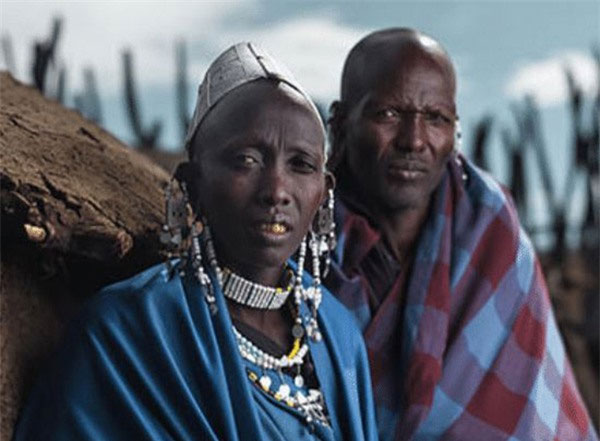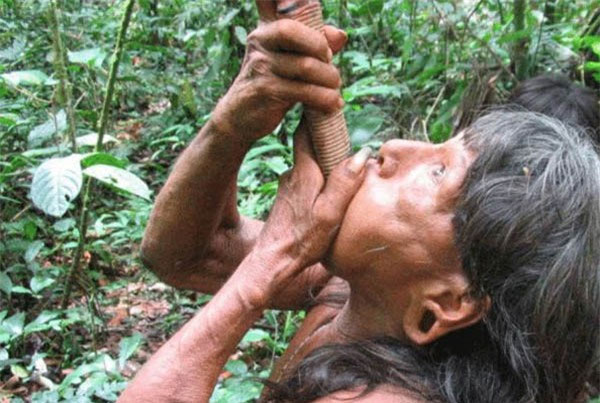Due to their remote geographical conditions, this tribe remains isolated from the human world, which means they cannot communicate through reading or writing, but only through gestures to understand what the other party is implying.
In Africa, there are still many places that are very underdeveloped, with resources not being utilized properly, leading to poor economic conditions in some regions. Although we are living in the 21st century, many primitive tribes still exist. One of them is the Comanga tribe. The most notable feature of this tribe is that they do not communicate through spoken words and even eat mosquitoes to survive each day.

Members of this tribe can only communicate with each other through gestures and signs.
Because of the harsh living conditions in such a remote and rugged area, no company has come to exploit resources here. As a result, the Comanga people live in isolation like primitive humans. Daily, they venture into the forest to hunt and gather, and perhaps due to their complete separation from the human world, the locals here are unable to speak or write. This tribe can only communicate with each other through gestures and signs, so only the local people can understand them.
<p Investigations have indicated that there may be a genetic mutation causing the vocal cords of the Comanga people to degenerate and shrink. Therefore, they essentially cannot speak, which is why they are often referred to as the “mute tribe.”
In addition, their eating habits are also quite unique. Living deep in the forest makes hunting challenging, so they are forced to find alternative food sources. Thus, they have started to eat mosquitoes, scorpions, and slugs found in the forest to stave off hunger. Although these foods may sound horrifying, the locals are very enthusiastic and enjoy them.

The Comanga people eat mosquitoes, scorpions, and slugs in the forest to combat hunger.
Today, the number of Comanga people is dwindling; previously, the population of this tribe was around several hundred thousand, but now it has decreased to only about 30,000 to 40,000 people. Although governments in some nearby countries have allowed them to migrate, most of the people refuse because they cannot adapt to modern life. They feel that the mountains and forests are the best places to live, and since they cannot communicate, they would certainly face discrimination if they entered modern society. Therefore, it is better for them to choose to live deep in the forest as they always have.

















































